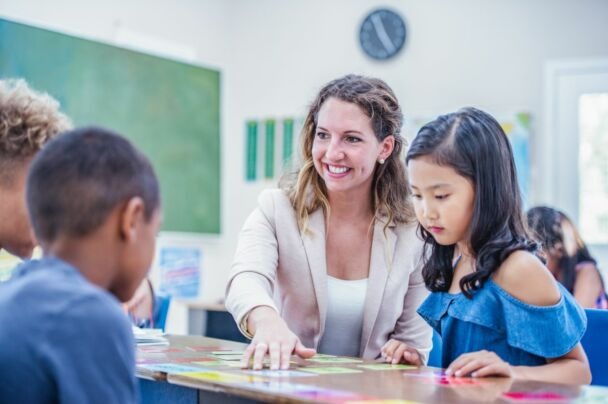In the dynamic landscape of education, the commitment to excellence in dedicated student care has emerged as a cornerstone for fostering academic success and personal development. Educational institutions are tasked with not only imparting knowledge but also nurturing the holistic well-being of their students. This comprehensive approach requires a strategic alignment of resources, personnel, and innovative practices designed to support diverse student needs. Best practices in dedicated student care emphasize the importance of individualized attention, proactive engagement, and a collaborative environment that encourages open communication between educators, students, and families. By implementing tailored support services, leveraging technology for personalized learning experiences, and promoting mental health awareness, schools can create an inclusive atmosphere where every student feels valued and empowered. Moreover, the integration of feedback mechanisms enables institutions to continuously refine their strategies, ensuring that they remain responsive to the evolving challenges faced by students today. An effective student care centre in Ang Mo Kio delivers comprehensive support that addresses both the educational needs and personal development of students. This article explores key best practices in dedicated student care, highlighting successful case studies and expert insights that demonstrate how a steadfast commitment to excellence can transform educational experiences and outcomes, ultimately preparing students for lifelong success in an increasingly complex world.
Personalized support fosters student engagement and growth
Tailoring educational experiences to individual student needs significantly enhances their engagement and fosters a sense of belonging within the learning environment. When students receive personalized support, they are more likely to feel understood and valued, which not only boosts their motivation but also encourages them to take an active role in their learning journey. Educators who take the time to identify each student’s strengths, interests, and challenges can design interventions and activities that resonate with learners on a personal level, leading to improved academic outcomes and increased retention rates.
Moreover, personalized support plays a crucial role in promoting self-efficacy among students. By providing targeted feedback and resources, educators can help students set realistic goals and develop the skills necessary to achieve them. This process not only enhances academic performance but also nurtures essential life skills such as resilience, critical thinking, and problem-solving. Consequently, a commitment to personalized support not only cultivates a more engaged and motivated student body but also equips students with the tools they need for lifelong growth and success.
Consistent communication builds trust and transparency
Effective communication is essential in establishing a solid foundation of trust and transparency within any educational setting. When students, educators, and support staff engage in open dialogue, it fosters a culture of collaboration where individuals feel safe to express their thoughts, concerns, and aspirations. Regular updates and feedback mechanisms enhance the educational experience by ensuring that all parties are informed and involved in the decision-making process. This two-way communication not only keeps students engaged but also cultivates a supportive community that values each member’s contributions.
Furthermore, transparency in communication clarifies expectations and responsibilities, reducing misunderstandings and fostering accountability. When students understand the rationale behind policies and decisions, they are more likely to trust the intentions of the educators and administration. This trust encourages greater participation and investment in their educational journey. By prioritizing consistent communication, educational institutions can create an environment where students feel empowered, respected, and connected, ultimately leading to more successful academic and personal outcomes.
Regular assessments ensure tailored educational experiences
Ongoing evaluations are pivotal in creating a dynamic and responsive educational environment. By systematically assessing student performance, educators can identify individual strengths and areas for improvement, allowing for personalized learning strategies that address the unique needs of each student. This tailored approach not only enhances engagement but also promotes a deeper understanding of the material, as students receive guidance and resources that are specifically aligned with their learning styles and academic goals.
Moreover, regular assessments provide valuable data that can inform instructional practices and curricular adjustments. By analyzing trends and patterns in performance, educators can adapt their teaching methods and interventions to better support student growth. Such adaptability ensures that the educational experience remains relevant and effective, ultimately fostering a culture of continuous improvement and empowerment within the learning environment. This commitment to individualized support not only enhances academic achievement but also nurtures a sense of ownership and responsibility among students regarding their educational journeys.
Collaboration enhances resources and shared expertise
Effective collaboration among educators, administrators, and support staff creates a rich tapestry of resources and expertise that significantly benefits student care. By pooling knowledge and experiences, teams can develop innovative strategies that leverage diverse perspectives and specialized skills. This collective approach not only enhances the quality of education but also allows for a more comprehensive understanding of student needs across various contexts, fostering a supportive environment where all students can thrive.
Additionally, collaborative efforts facilitate the sharing of best practices and resources, reducing redundancy and increasing efficiency. When teams work together, they can identify and implement evidence-based strategies that have been successful in other settings, thereby accelerating the impact of their initiatives. This synergy not only maximizes available resources but also cultivates a culture of professional growth, as educators learn from one another and continuously refine their approaches to meet the evolving demands of their student populations.
Continuous improvement promotes a culture of excellence
A focus on continuous improvement serves as a catalyst for fostering a culture of excellence within educational environments. By consistently evaluating and refining processes, institutions can not only enhance student care but also create an atmosphere where high expectations become the norm. This ongoing commitment to assessing performance and seeking innovative solutions encourages all staff members to engage in professional development, share insights, and apply best practices. As a result, a mindset that values growth and adaptability takes root, inspiring educators to strive for superior outcomes in their teaching and support methods.
Moreover, the practice of continuous improvement reinforces accountability and encourages a proactive approach to problem-solving. When teams are empowered to identify areas for enhancement, they are more likely to take ownership of their roles in shaping an exceptional educational experience. This cycle of reflection and action cultivates resilience, as staff members are motivated to embrace challenges and transform them into opportunities for growth. Ultimately, this commitment to refining and elevating standards not only benefits individual students but also strengthens the entire educational community, leading to sustained excellence over time.
Conclusion
Fostering a commitment to excellence in dedicated student care is essential for creating an environment where students can thrive both academically and personally. By implementing best practices—such as personalized support, open communication, and proactive engagement—educators and administrators can significantly enhance the student experience. This holistic approach not only addresses the diverse needs of students but also cultivates a culture of trust and belonging within educational institutions. As we continue to prioritize student care, let us remain steadfast in our dedication to empowering the next generation of learners, ensuring they have the resources and support necessary to achieve their full potential.


